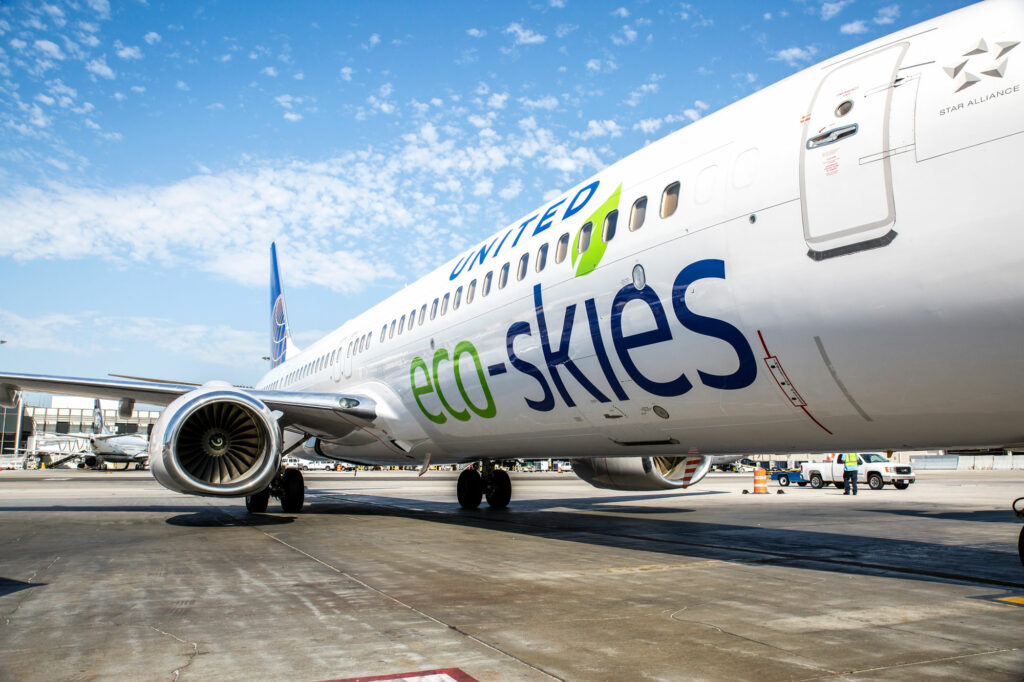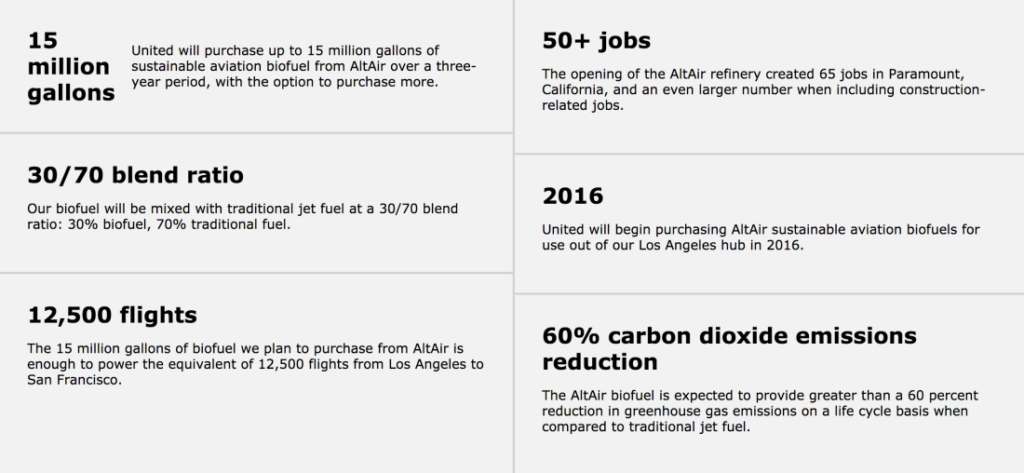
With the Tesla, the Nissan LEAF, Chevy Volt, and many other electric cars coming to market, cars are getting the clean energy upgrade they desperately needed. But cleaning up emissions from aviation might be even more challenging. Fossil fuels are incredibly useful in aviation due to their high energy density and ubiquity. Finding a fuel that meets air travel’s intense energy demands, is available all over the world, and releases far fewer pollutants into the atmosphere is an incredibly difficult problem. United Airlines is working hard to tackle that challenge.
As a sponsor of the Evergreen Climate Innovations Challenge, United has proven a lasting commitment to innovative cleantech. United has also followed up that support with changes in their own operations. As of March 13, 2016, Sustainable Brands reported that “Regularly scheduled United Airlines flights between Los Angeles and San Francisco will be fueled by a blend of 30 percent biofuel and 70 percent traditional fuel, reducing an estimated 60 percent of greenhouse gas (GHG) emissions compared with regular fuel.”
This initiative is part of a larger commitment to a sustainable future. “[This] historic launch of regularly scheduled service utilizing advanced biofuels represents a major next step in our ongoing commitment to operate sustainably and responsibly,” said Angela Foster-Rice, United’s managing director of environmental affairs and sustainability.
Importantly, the bio-fuel being used is generated from bio-waste. The fuel is made by AltAir Fuels and instead of turning food into fuel—a critique often levied at other bio-fuels—AltAir’s technology allows airlines to turn waste into useful energy.

This is not to say that United’s work is done. “We are very, very far from meeting the global transportation needs with biofuels because so much fuel is consumed,” said Deepak Rajagopal, a biofuel policy expert with the UCLA Institute of the Environment and Sustainability.
But this initiative and United’s commitment to the Evergreen Climate Innovations Challenge are important steps in their larger goal. “You need to start somewhere,” said Foster-Rice.